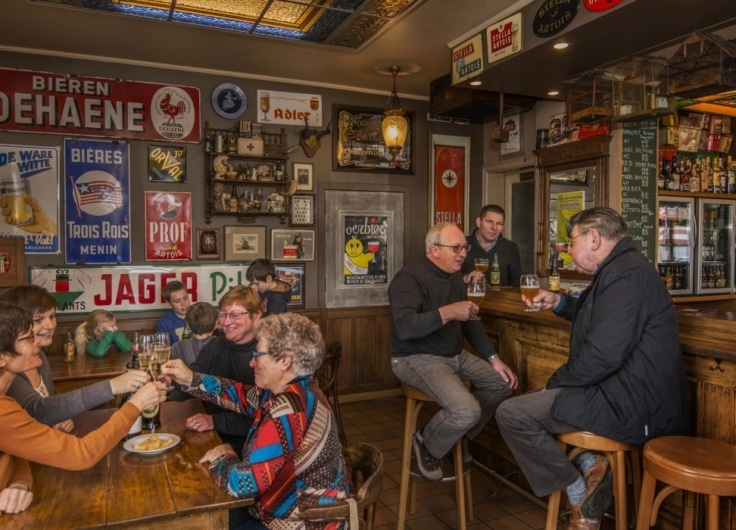One of Amsterdam’s oldest brown cafés, De Engelbewaarder (The Guardian Angel), is located on the first floor of a canal house, reached up a steep flight of old stone steps. The wooden floors creak as you enter. A song by Tom Waits plays in the background. It feels like coming home.
It was my local cafe when I lived in Amsterdam in the 1980s. Somewhere warm when the pipes froze in winter. A place to sit with a book on a summer afternoon.
I liked the old piano, the cat that prowled around, the iron stove that kept the place warm in winter. If you were lucky, you could sit at one of the two round tables next to the window looking out on Kloveniersburgwal.
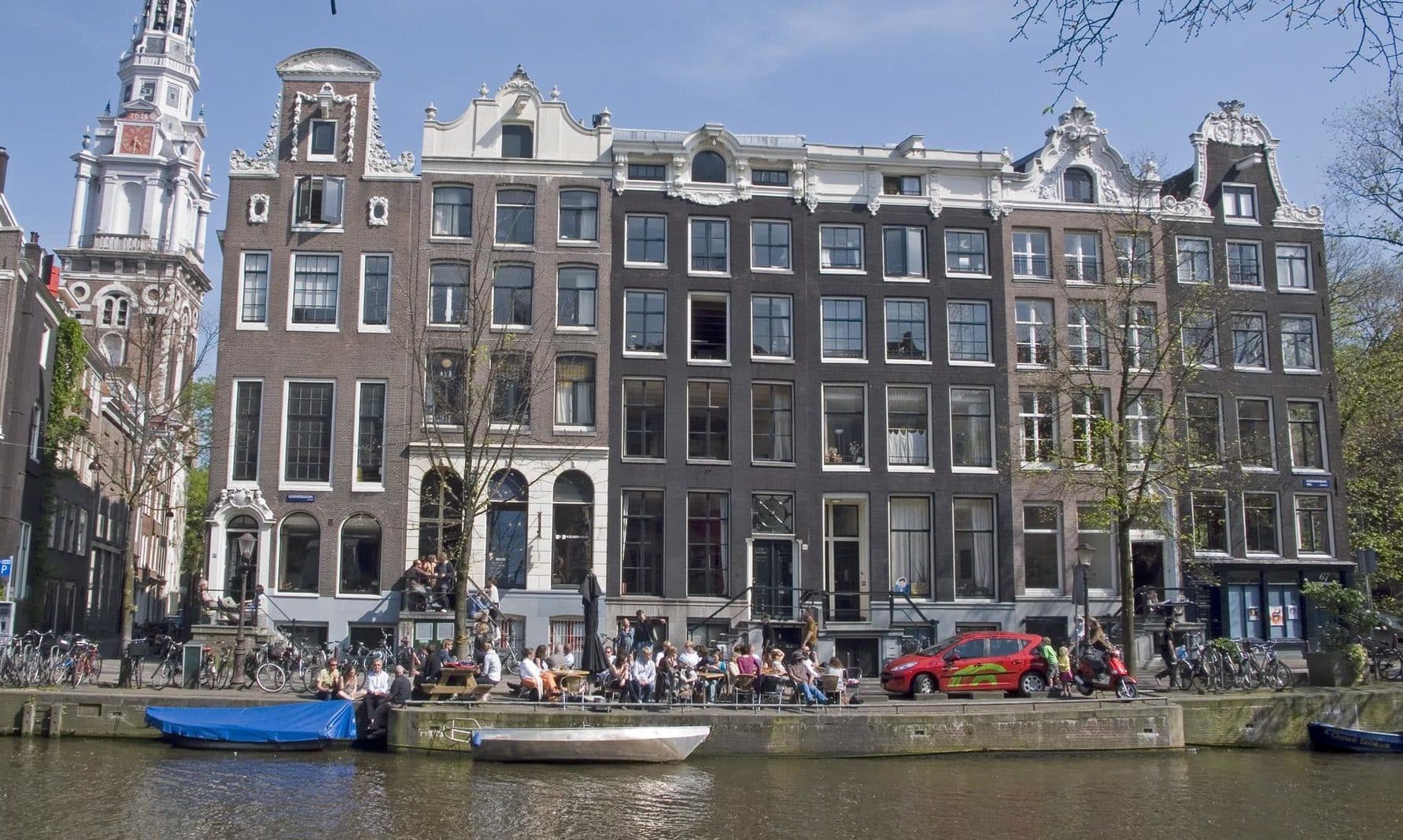 Café De Engelbewaarder (second house from the left) at Kloveniersburgwal 59 in Amsterdam
Café De Engelbewaarder (second house from the left) at Kloveniersburgwal 59 in Amsterdam© Zapdelight / Flikr
The walls are painted a murky cream and brown. The tones of Rembrandt, who lived just around the corner. The posters on the walls advertise concerts at Paradiso and Bimhuis.
The café was founded in 1971 by Bas Lubberhuizen, who also ran a literary publishing house. Some of the furniture came from an old Amsterdam bar.
Originally it was called rather grandly Het Amsterdamsch litterair café De Engelbewaarder. The name still appears on the sign above the entrance. It was inspired by W.F. Hermans’ 1971 novel Herinneringen van een engelbewaarder (Memories of a Guardian Angel). The first literary cafe in the Netherlands, De Engelbewaarder was a meeting place for novelists, poets and publishers. It also hosted literary readings, chess games and pinball competitions.
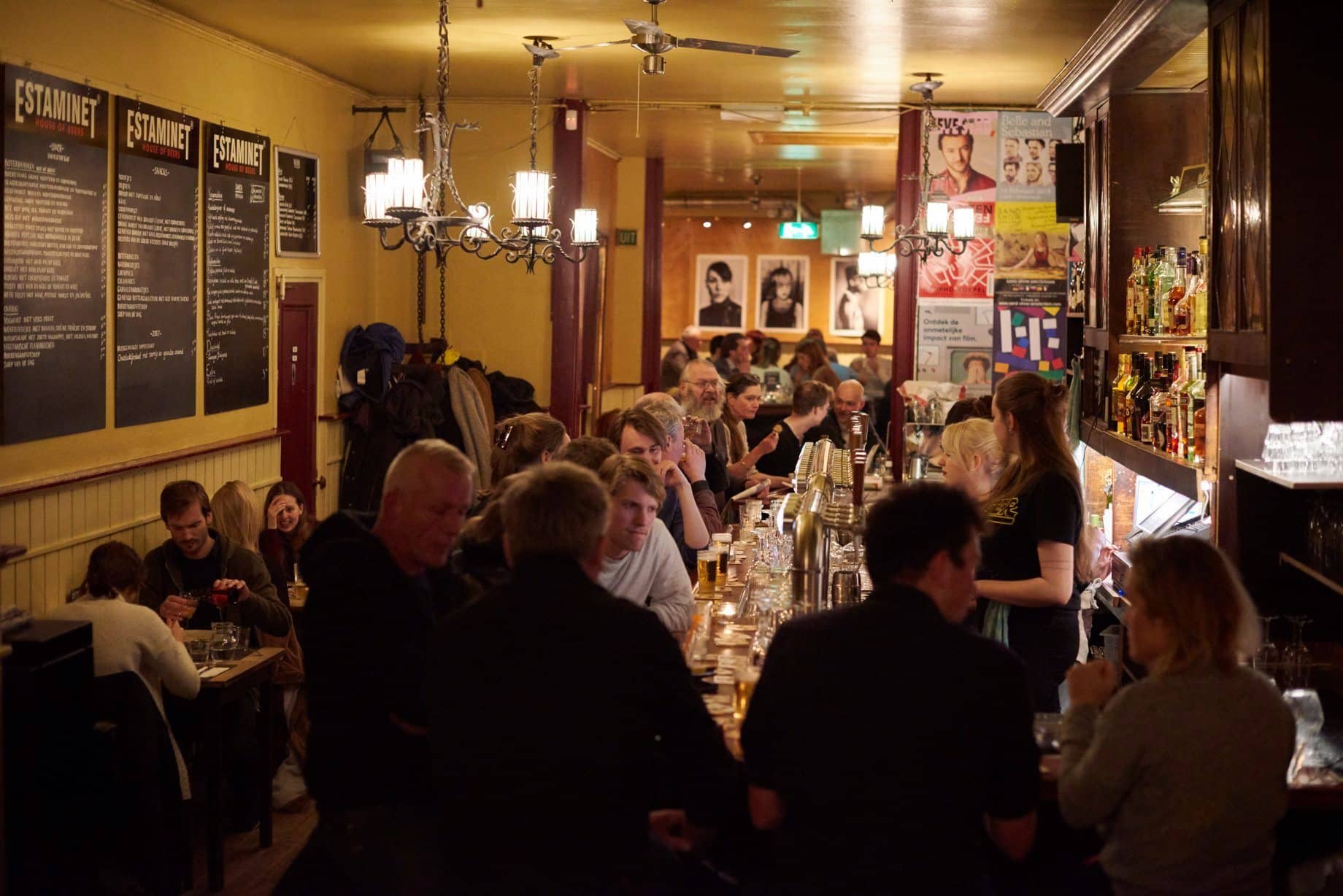
© Facebook page De Engelbewaarder
It’s easy to miss the photograph hanging above the bar. It shows the exiled writer Joseph Roth sitting with a group of Dutch artists in the Noord-Zuid Hollandsch Koffiehuis, on the waterfront outside Centraal Station. The photograph is a reminder that Roth lived in a hotel in this neighbourhood from 1936 to 1937. He liked the atmosphere of the Jewish Quarter, the local bars and the chimes of the Oude Kerk. He would probably have liked De Engelbewaarder.
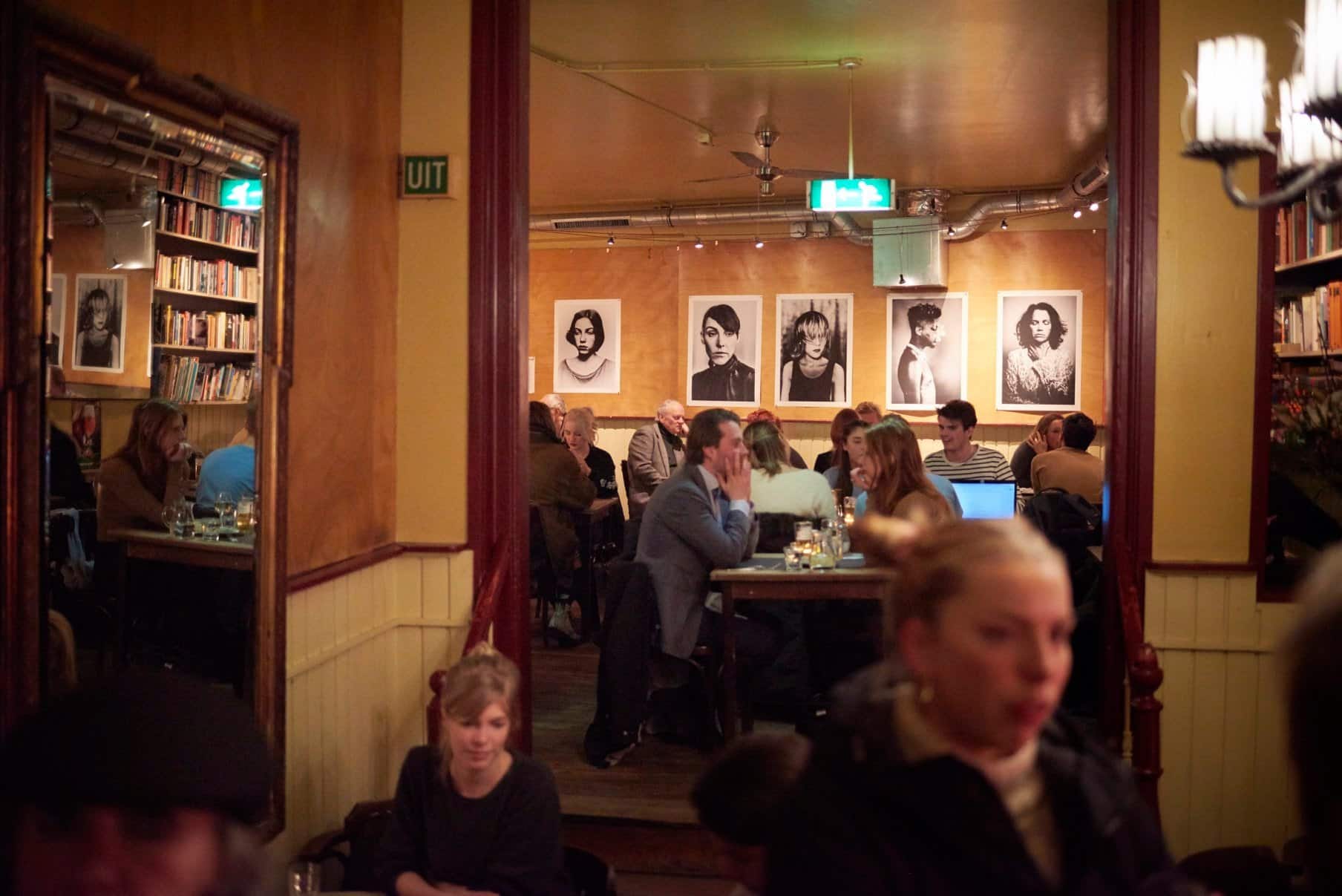 You can always find art on display at De Engelbewaarder.
You can always find art on display at De Engelbewaarder.© Facebook page De Engelbewaarder
The American writer John Irving visited the café while researching his 1998 novel A Widow for One Year. His unflattering portrait of De Engelbewaarder describes a dog that is always farting and a drunk group of English football fans. The quote hangs above the door, in an obscure corner where no one notices it.
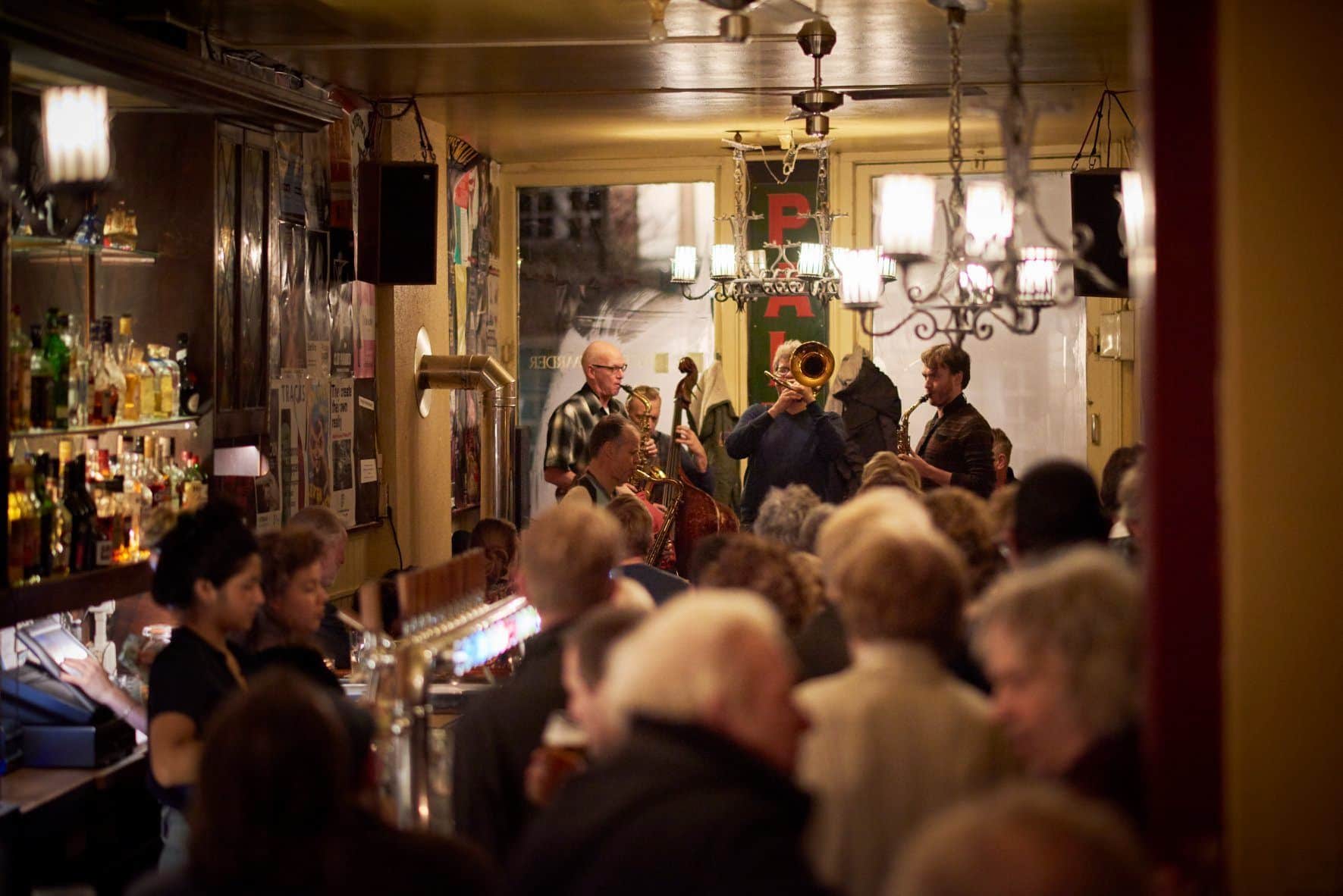 Every Sunday afternoon (except in the summer) there is a jazz jam session at De Engelbewaarder.
Every Sunday afternoon (except in the summer) there is a jazz jam session at De Engelbewaarder.© Facebook page De Engelbewaarder
De Engelbewaarder feels a bit old-fashioned these days. It’s a café for talking, listening to jazz, browsing the bookshelves in the back room for something to read. It doesn’t do fancy coffees. Laptops are banned from some of the tables.
A lot of these old brown cafés have closed down. Maybe De Engelbewaarder won’t last much longer. Maybe it will need a guardian angel to save it.


